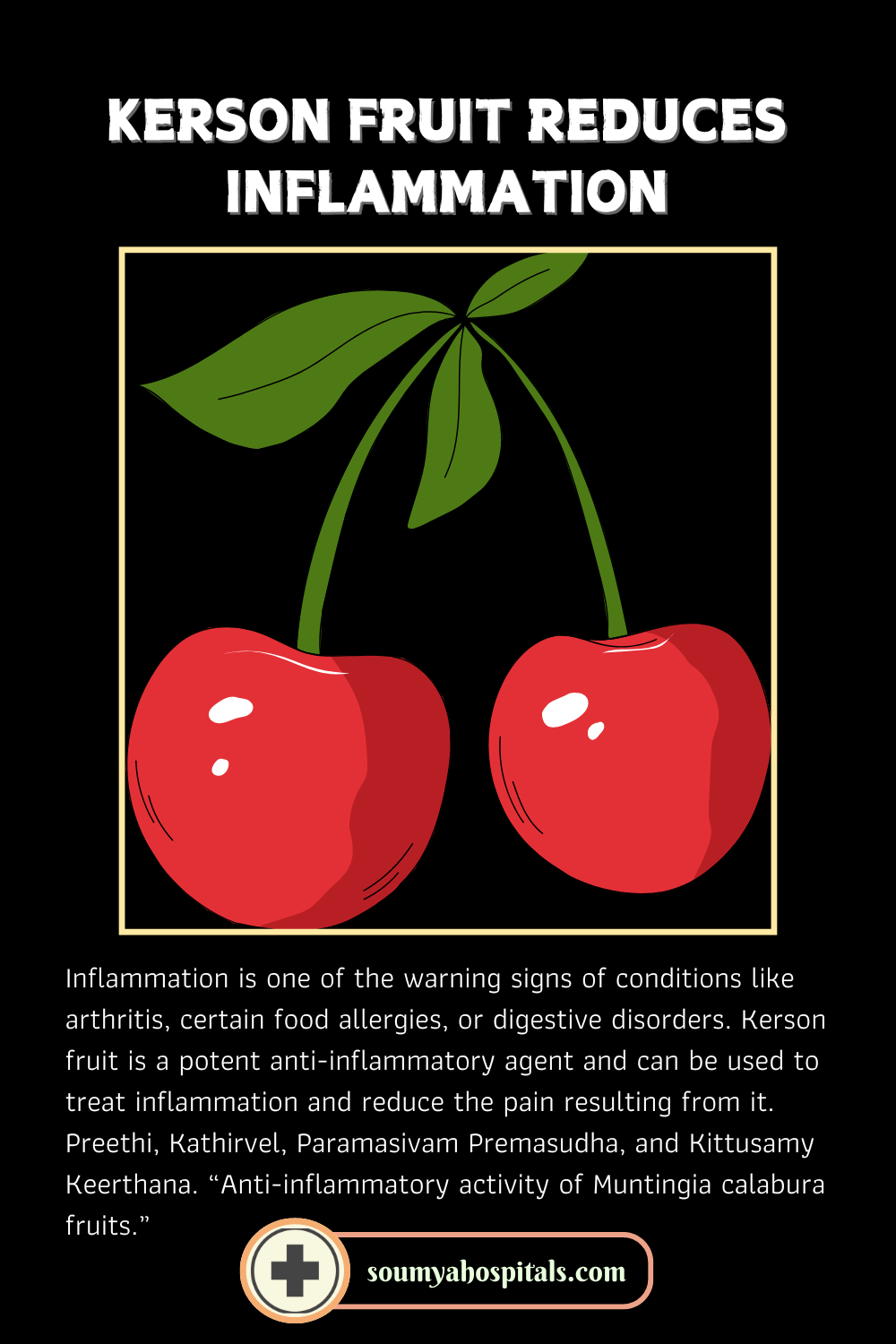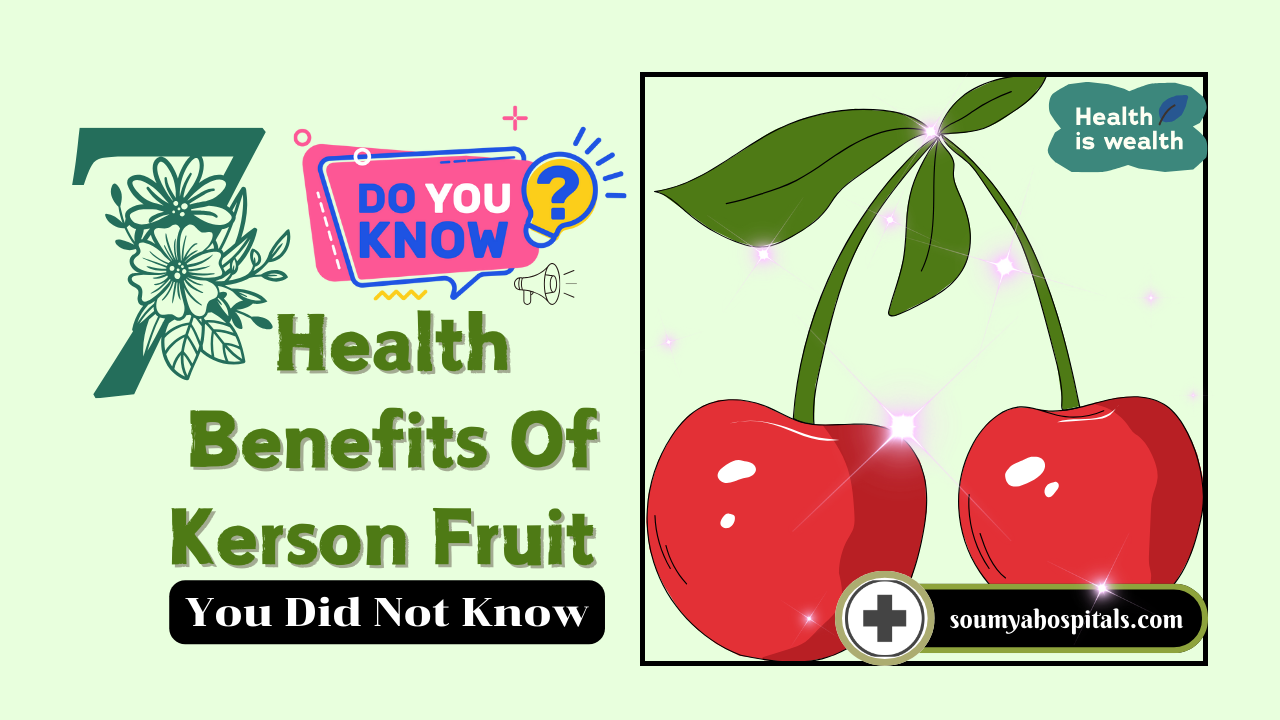The kerson fruit (Muntingia calabura) is a flowering plant that bears Jamaican cherries and is grown mainly in warm areas, such as India and Southeast Asia. The tree is indigenous to Central America, tropical South America, Mexico, and Trinidad among other places.
The cherries can be eaten as is and are also used in making jams and tarts as well as in tea infusions. Although little known, this tree, along with its fruits and leaves, has multiple health benefits.
To derive the effects of the fruit, eat about 10–12 kerson cherries every day or opt for tea infused with kerson leaf extracts.
1. Relieves Pain
If you’re suffering from chronic pain, arthritis, or gout, you might want to include kerson fruit in your diet. Although the kerson cherries cannot cure the underlying condition or disease, they help in managing and reducing pain. The kerson plant, especially its leaves, is known for its antinociceptive property that blocks your nerves from sensing pain.
“Antinociceptive activity of methanol extract of Muntingia calabura leaves and the mechanisms of action involved.” Evidence-Based Complementary and Alternative Medicine (2012). The leaves of the kerson fruit also contain antioxidants like vitamin C and flavonoids, which contribute to the pain-blocking function.
2. Reduces Inflammation
Inflammation is one of the warning signs of conditions like arthritis, certain food allergies, or digestive disorders. Kerson fruit is a potent anti-inflammatory agent and can be used to treat inflammation and reduce the pain resulting from it. “Anti-inflammatory activity of Muntingia calabura fruits.”

3. Protects Your Heart And Reduces High Blood Pressure
With heart disease being one of the topmost causes of mortality, it’s essential that you take steps to prevent and treat it. Kerson leaves are rich in antioxidants and fiber that protect your heart and reduce your risk of heart disease. In fact, studies also observe that frequent consumption of kerson fruit could save you from heart attacks. “Effects of Muntingia calabura L. on isoproterenol-induced myocardial infarction.”
Additionally, leaves of the kerson fruit can also lower high blood pressure. The nitric oxide in kerson fruit expands your blood vessels, thereby improving blood flow and regulating high blood pressure.
4. Keeps Your Digestive Tract Healthy
Our fast-paced, unhealthy lifestyle makes us prone to several illnesses, the most common one being stomach or gastric ulcer, which can display symptoms like belching, heartburn, indigestion, nausea, passing excessive amounts of gas, or vomiting. And thanks to its anti-inflammatory, antimicrobial properties, the fruit can help prevent and treat gastric ulcers. By eliminating harmful bacteria, kerson fruit can also reduce your risk of developing other bacterial digestive issues and promote gut health.
5. Boosts Immunity And Prevents Infections
As discussed earlier, kerson fruit is an excellent antioxidant. By reducing the cell damage caused by oxidization, the fruit can boost your immunity, keep diseases at bay, and reduce the duration of illnesses. And accompanied by its antibacterial and antifungal properties, kerson fruit can also help treat flu, common colds, and other infections. In fact, munching on the fruit and drinking tea made of its leaves are known to work wonders in curing headaches, which usually mark the first stage of a cold.
6. Manages Blood Sugar Levels
Over 8.5% of the global population is affected by high blood sugar levels (hyperglycemia) and diabetes. If you’re diabetic, it’s important that you regulate your diet and consume foods that decrease your blood sugar levels. Kerson fruit contains anti-diabetic substances like ascorbic acid, fiber, beta-carotene, riboflavin, thiamine, and niacin that manage your sugar levels and prevent hyperglycemia.
7. Prevents Cancer
Although there hasn’t been enough research on kerson leaves’ anticancer properties, certain studies suggest that the flavoinoids present in kerson leaves could prevent the formation of cancerous tumors. “Anticarcinogenic activity of Muntingia calabura leaves methanol extract against the azoxymethane-induced colon cancer in rats involved modulation of the colonic antioxidant system partly by flavonoids.”
Other than fiber and protein, the kerson fruit has a lot of vitamins and minerals like calcium, phosphorus, and iron. These promote strong bones, improve blood circulation, keep the body hydrated, and prevent anemia.
